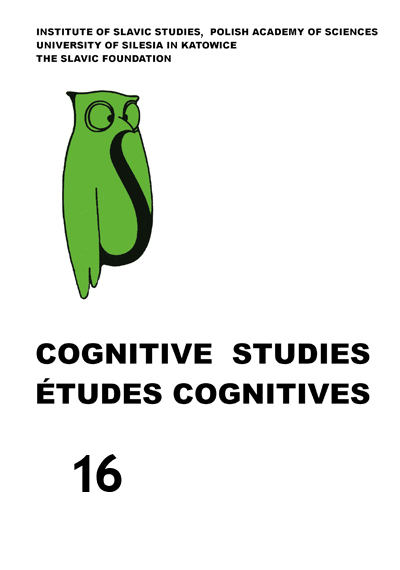BETWEEN GALILEO AND DARWIN, OR TOWARDS A UNIFIED MODE OF IDEALIZATION IN COGNITIVE LINGUISTICS
BETWEEN GALILEO AND DARWIN, OR TOWARDS A UNIFIED MODE OF IDEALIZATION IN COGNITIVE LINGUISTICS
Author(s): Ariadna StrugielskaSubject(s): Semantics, Cognitive linguistics
Published by: Instytut Slawistyki Polskiej Akademii Nauk
Keywords: cognitive linguistics; semantic theorizing; situated and distributed meaning; idealization;
Summary/Abstract: The aim of this paper is to demonstrate that Cognitive Linguistics is in need of a coherent model through which the meaning of symbolic units can be represented. Departing from the premise that scientific theorizing requires taking a stance on the nature of idealization, the current discussion concentrates on cognitive linguists’ perspectives on the process, and reveals a lack of uniformity in the models proposed. On the whole, generalizations in Cognitive Linguistics are conducted in a manner reflecting the basic commitments of the approach, and hence the idealized models discussed strive to capture the embodied nature of cognition reflected in the semantic poles of symbolic units. However, a detailed analysis shows that a number of significant choices underlying the process of abstraction are random. Consequently, the modes of idealization revealed through semantic frames and cognitive domains lead to the emergence of barely compatible semantic categories which are assumed to represent the meaning of the same symbolic unit. It is thus postulated that if Cognitive Linguistics aspires to become a mature scientific theory, whose constructs and hypotheses can be operationalized and falsified, it needs to develop a more unified framework in which the situated and distributed natures of meaning are accounted for in a motivated manner.
Journal: Cognitive Studies | Études cognitives
- Issue Year: 2016
- Issue No: 16
- Page Range: 164-173
- Page Count: 8
- Language: English

